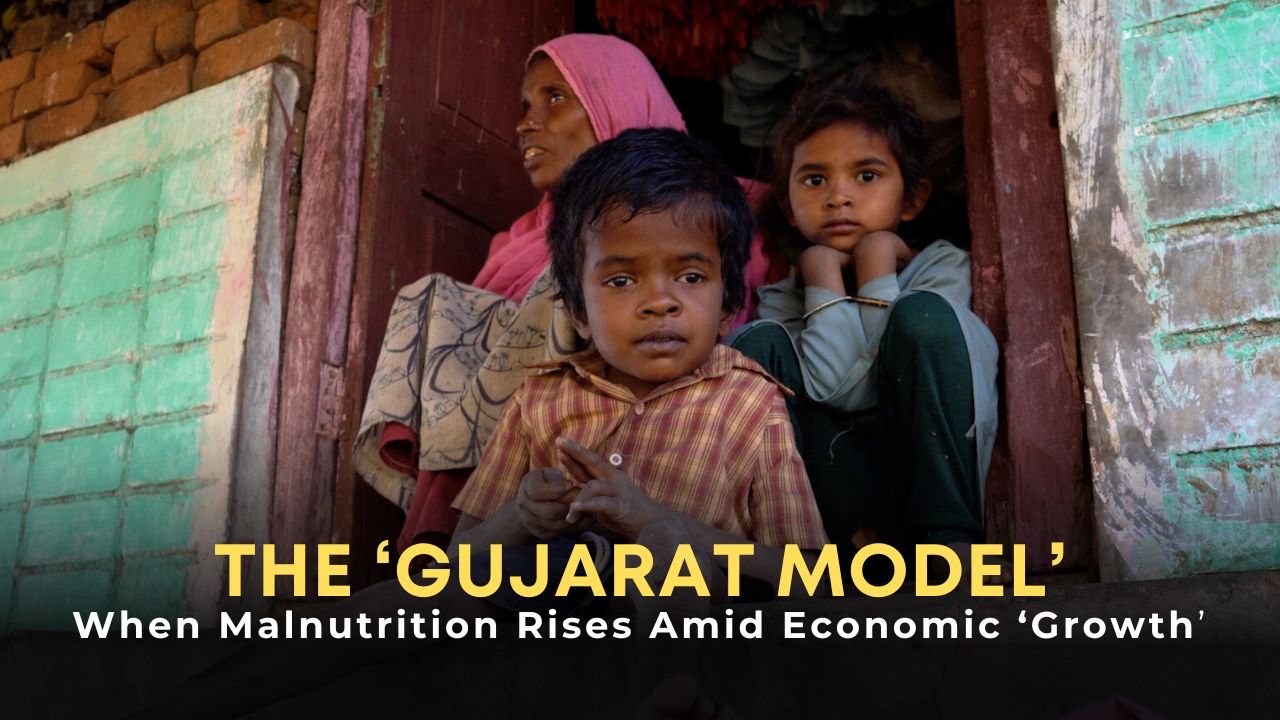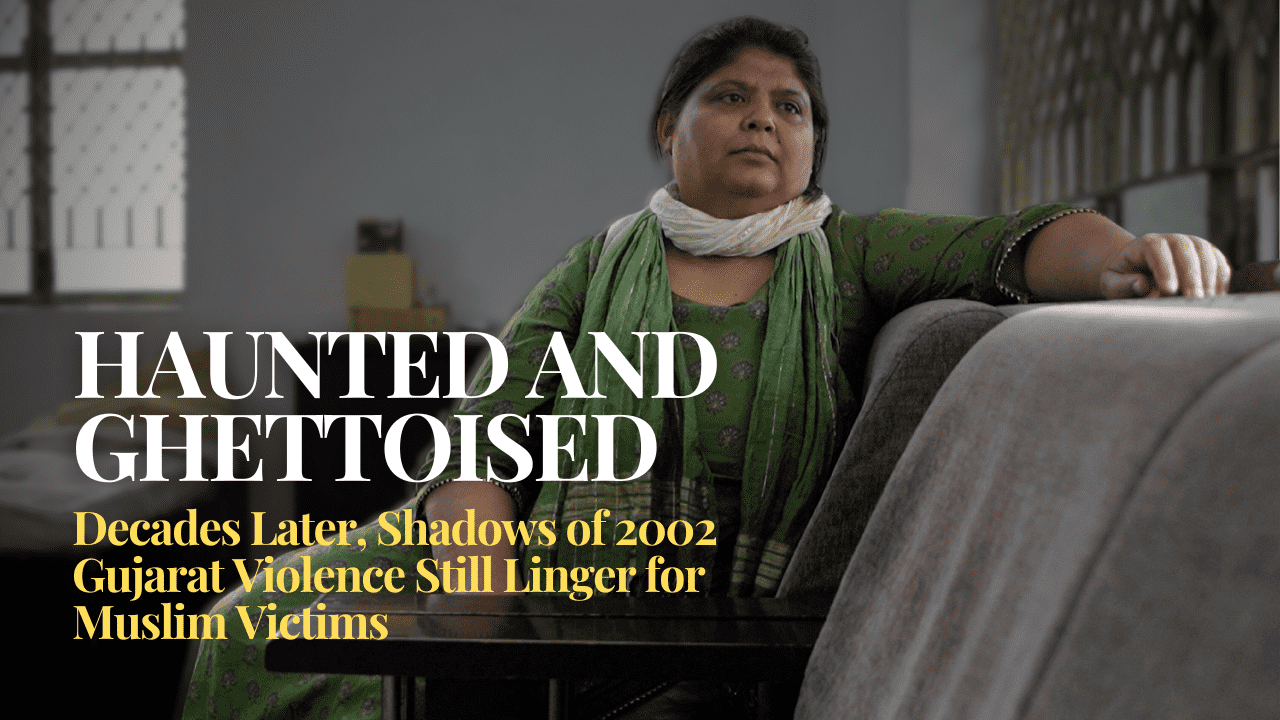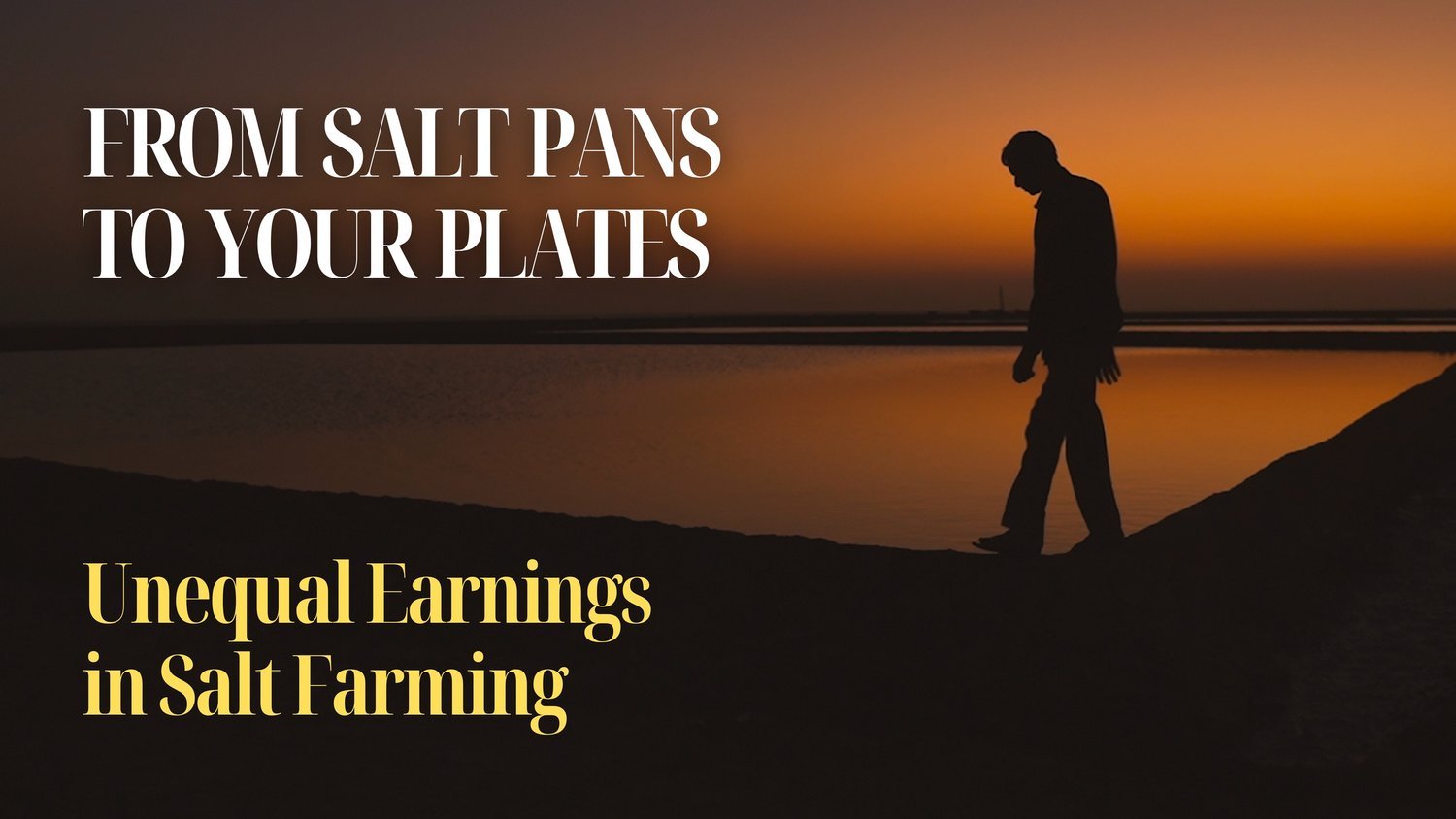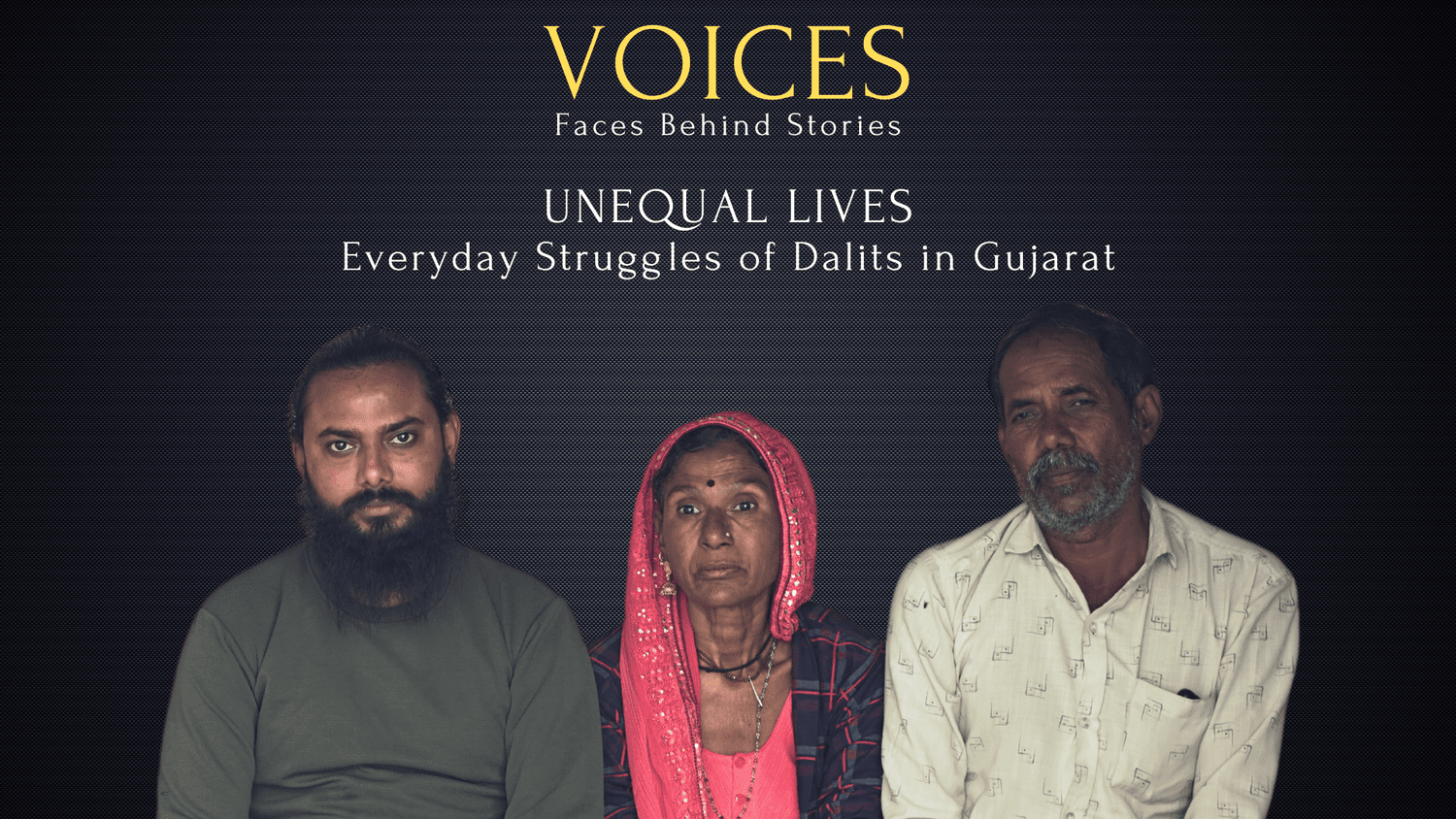
The ‘Gujarat Model’ – The Rising Malnutrition Amid Economic ‘Growth’
Sheela, a tribal activist from Devgadh Mahila Sangathan, Anandi Foundation, has dedicated her life to fighting for the rights of Adivasi and Dalit communities in Gujarat’s Dahod district. Her work has revealed a grim reality that contrasts sharply with the glowing narratives of Gujarat’s economic success. She takes Newsreel Asia into the heart of this crisis, introducing us to Anita Naik, a mother in Lawaria Village. Anita, like many others, struggles to keep her children alive. One of her children tragically passed away, while her three-year-old son, Rajesh, was born blind and with severe physical deformities—a devastating consequence of the silent malnutrition crisis in the state.

HAUNTED AND GHETTOISED: Prolonged Aftermath
Khairunissa, along with her siblings and parents, spent years living in a multi-religious and multicultural apartment in Ahmedabad, Gujarat. When communal tensions and targeted violence against Muslims erupted in the city on February 28, 2002, her family initially felt secure, confident that their neighbours would be able to protect them. But then Khairunissa saw a mob approaching their building. In an instant, their lives and circumstances changed dramatically. More than 22 years later, the lasting impact continues to affect them and hundreds of thousands of Muslims in the state.

Unequal Earnings in Salt Farming
Gujarat stands as India’s foremost salt-producing state, contributing 85% to the nation's total salt output. Within Gujarat, 31% of this production originates from the Agariya community living within the Little Rann of Kutch. Despite being the primary contributors to the salt industry, the Agariya people find themselves receiving the smallest share of profits. Furthermore, they grapple with the adverse effects of climate change, directly impacting their livelihoods. In this narrative, Bhopa and Gunand, two Agariya salt farmers, shed light on the disparity in earnings within the salt farming sector.

UNEQUAL LIVES | Everyday Struggles of Dalits in Gujarat
Bhupat Bhai Sekhaliya, a diligent and hardworking rickshaw driver from Gujarat, belongs to the Dalit community. Despite his unwavering dedication, the respect he deserves eludes him, particularly from individuals of "upper" castes in his vicinity. Many daily activities, deemed "normal" for any resident, remain inaccessible to him. Defiance can lead to physical assault. However, Bhupat's story is not an isolated incident. In Gujarat, the spectre of violence against Dalits looms large, with an average of four cases reported daily. The past seven years have seen a staggering total of over 9,000 documented instances of such violence.
